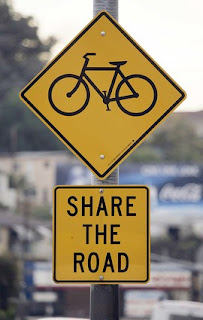I pay attention. I also have an enormous imagination, which also can be quite helpful at times.
Case in point: the recent decision of Sturbridge land owner to take 40 acres of forested hillside on Shepard Road, clear cut the trees, and then erect 27,000 solar panels. Obviously, the decision to construct an eco-friendly power source was not born out of a desire to better our world, eliminate carbon foot prints, or anything else ecologically beneficial. The decision was born out of what the heck to do with land that could no longer be used for its original purpose, a housing development, because of the economy, and the max benefit per acre had to be found. This doesn't take any imagination to figure out.
Clear cutting 40 acres on a hillside for solar energy is beyond oxymoronism, it is a desperate move to recoup an investment.
Now, here is where being "far removed from something" comes in to give one some a better view. It could also be viewed as stupid.
Destroying a wildlife habitat, disturbing the ecosystem of a hillside that would eventually subside into residents back yards, the destruction of 40 acres of trees, and the benefits they give us, all to supply the electric grid with 6 megawatts of solar power.
What is wrong with picture? No imagination needed here, either.
But, wait, there's more.
Now, the land owner has decided to cut back his initial project from 40 acres to 25 acres, and to downsize the power production from 6 megawatts to 4 mw in order to avoid the input of the Conservation Commission. Another action that is more financially driven since the denial, and/or restrictions the Conservation Commission would make would most likely shut down the project.
Mr. Krevosky said the concept now is in “the 4 megawatts range” and would involve fewer than 25 acres.
“There will be a reduction in the size of the project. That is a definite,” Mr. Krevosky said. “Now the discussion is to … move the project 200 feet away from wetland boundaries and, if that is done, it will take it out of the Conservation Commission's jurisdiction.” --Worcester Telegram November 26, 2012
Hmm. Blatant admissions of just how one wants to circumvent the powers that be in order to have their way is not usually done with this much forethought; unless there is another motive.
Imagine this: a developer desperate to use the land he purchased, and can no longer make money on. Selling it to another land developer won't happen for the same reasons he is stuck with it, but maybe, just maybe, if a really ludicrous plan is announced it might work in their favor. How about a plan to remove a forest in order to make electricity from the sun? Once it is made public it will stir up the town folk to stop it, ad the town would feel reasonably safe since the Conservation Commission would be there to stop it, too.
Then, comes part 2.
The owner then backs off on the original projects size, and openly states that the reason he has done this is to take the Conservation Commission out of the equation. This gives the impression that they are still going forward with the project, and are willing to cut back its size in order to circumvent closer scrutiny, and possible rejection. In other words, we are still going through with this, and now there is less you can do to stop us.
Now, you don't have to be a screenplay writer, or have an overactive imagination, to see what comes next. The town runs out of options, or money to fight the project, and the developer doesn't really want to build a solar power plant. All they want to do is unload the land. How much does this land, the hillside, the forest, and the happiness of the abutters really mean to the town? Enough to buy it? Preserve it forever from developers. That would eliminate the threat of development, save the land, and send the developer happily away. Sound familiar? We've been down this road a few times. Our past actions speaks volumes.
Silly scenario? Maybe, but destroying a forest to offer eco-friendly power is pretty silly, too. I've seen sillier things get accomplished, but from here, this may not be so stupid. In fact, the plan is actually brilliant, but I think the developer is a few years too late. Sturbridge's land buying days are over for awhile.
At least I hope so.
I can't wait for the third installment.




